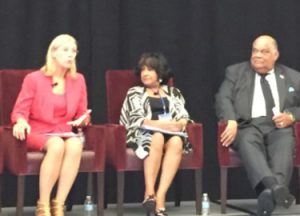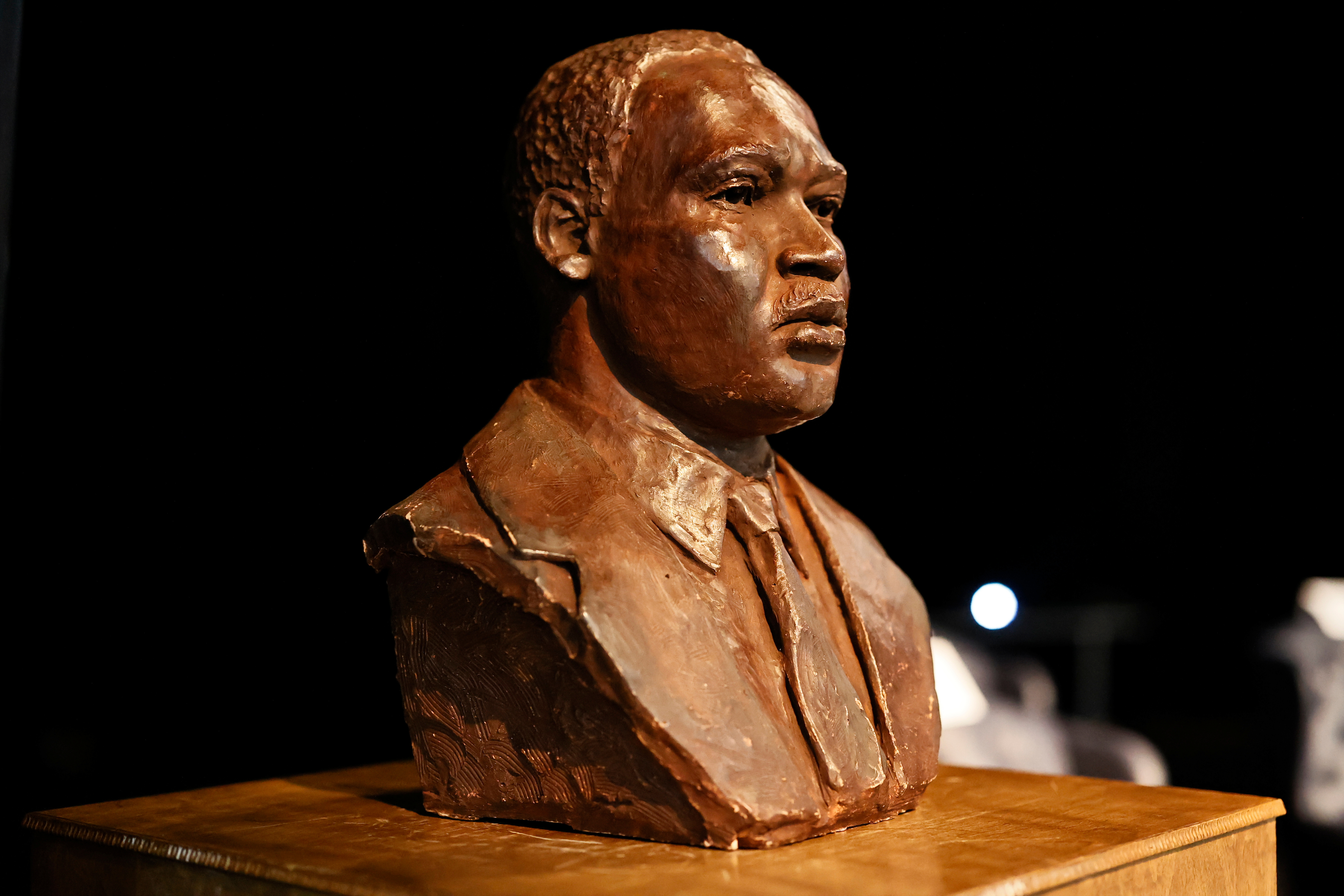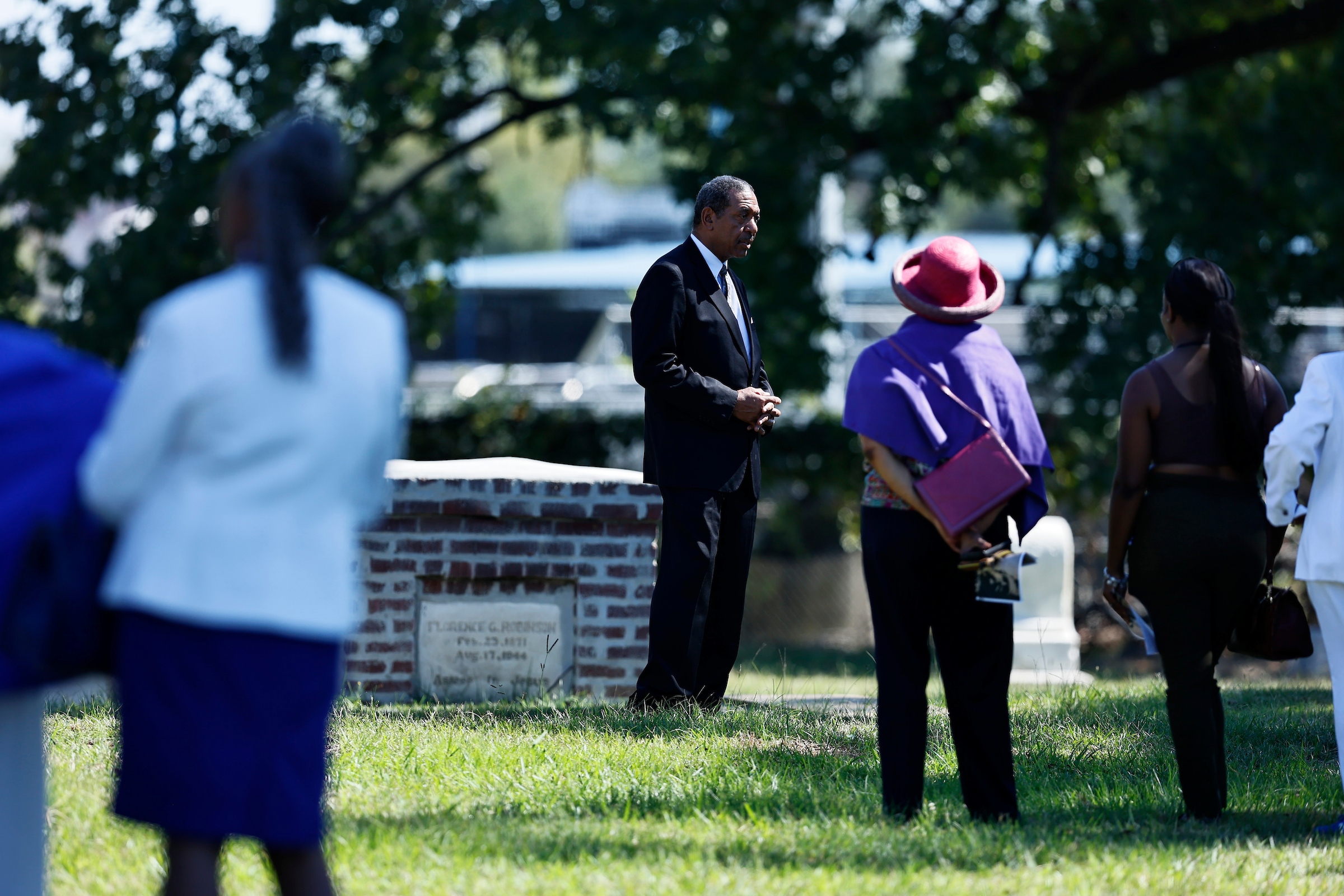
Members of the Jackson State University Athletics Leadership team attended the recent NCAA Accelerating Academic Success Program (AASP) Conference in New Orleans and provided insight into the practices that allowed the university to chart a new course for its athletics programs.
During the conference, July 22-23, JSU and administrators and coaches at other limited-resource institutions participated in roundtable discussions on topics such as best practices for program implementation, engagement in the NCAA governance structure and collaboration among limited-resource institutions.
JSU President Carolyn W. Meyers emphasized the importance of setting goals and having high expectations during the Chancellors and Presidents Summit.
“It was important to integrate athletics throughout the beautiful fabric of the university,” said Meyers.
Shortly after Meyers assumed the presidency at Jackson State, JSU was selected as one of the first NCAA Division I schools to participate in the pilot program, then known as the 930 Initiative at JSU. The university’s football program, following several years of unsatisfactory Academic Progress Rate (APR) scores, was faced with level-four sanctions from the NCAA. Under Meyers’ leadership, JSU formulated a plan to engage the entire university community and formed an APR task force to identify and correct academic problems within the Division of Athletics.
The NCAA recognized the need to assist HBCUs and limited-resource institutions in improving APR scores. As a result, it established the Academic Success Program Pilot. JSU is one of the first institutions to complete the program. During its participation in the initiative, JSU was considered a model AASP institution by the NCAA.
Tiger athletic programs have consistently met or surpassed NCAA APR requirements. This year, JSU had two teams (men’s cross country and women’s tennis) to record perfect APR scores (1,000), and the football team won the FCS APR award for having the highest APR score in the SWAC.
“We have over 180 student-athletes with over a 3.0 grade-point average,” Myers said. “You gave us the resources to try something different, and we rose to the occasion and proved that this could be done differently.”
JSU’s championship baseball coach Omar Johnson also gave insight on the AASP initiative from a coach’s perspective.
“We had a lot of issues at Jackson State,” he said. “We had eligibility and retention issues. During that time, we put some very good teams on the field; we averaged about 33 wins a year, but we were not retaining our kids.”
To address the eligibility and retention issue, JSU made several changes to policies and procedures within the Division of Athletics. Recruitment criteria were strengthened – each sport could only recruit a certain number of at-risk students, those whose grade-point averages fell below a 2.5, and junior college athletes. Mandatory study-hall (now called academic practice) was instituted, as well as the formation of the APR Task Force – which involved the entire campus.
“It takes the whole group, the academic enhancement counselors, assistant coaches, administrators and the faculty. Those are the people who have to be on board to make it happen” Johnson said.








